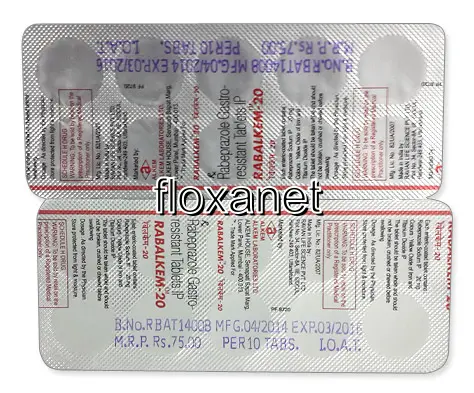| Package | Dosage | Price | Price per Dose | |
|---|---|---|---|---|
| Dosage: 10mg | ||||
| 360 pill | 10mg | AUD475.20 | AUD1.32 | |
| 180 pill | 10mg | AUD258.30 | AUD1.44 | |
| 120 pill | 10mg | AUD189.28 | AUD1.58 | |
| 90 pill | 10mg | AUD151.81 | AUD1.70 | |
| 60 pill | 10mg | AUD114.35 | AUD1.89 | |
| 30 pill | 10mg | AUD67.02 | AUD2.25 | |
| Dosage: 20mg | ||||
| 360 pill | 20mg | AUD950.42 | AUD2.64 | |
| 180 pill | 20mg | AUD510.70 | AUD2.84 | |
| 120 pill | 20mg | AUD374.64 | AUD3.12 | |
| 90 pill | 20mg | AUD297.73 | AUD3.31 | |
| 60 pill | 20mg | AUD207.03 | AUD3.45 | |
| 30 pill | 20mg | AUD110.41 | AUD3.69 | |
| 10 pill | 20mg | AUD41.39 | AUD4.12 | |

Rabeprazole Description
Overview of Rabeprazole
Rabeprazole is a medication commonly used to treat conditions related to excess stomach acid production. It belongs to a class of drugs called proton pump inhibitors (PPIs). These medications work by blocking the enzyme in the stomach lining responsible for acid secretion, leading to a significant reduction in acid levels. Rabeprazole is effective for managing various gastrointestinal conditions, providing relief from pain and discomfort associated with acid-related ailments.
Uses and Benefits
This medication is primarily used for the treatment of gastroesophageal reflux disease (GERD), which causes heartburn and acid regurgitation. It is also prescribed for peptic ulcers, Zollinger-Ellison syndrome, and to eradicate Helicobacter pylori infections when combined with antibiotics. Many patients find Rabeprazole helpful in healing damage caused by stomach acid, preventing complications such as esophageal erosion or bleeding. Its quick onset of action and potent acid suppression make it a preferred choice among PPIs. Long-term users report significant improvements in quality of life, especially when managing chronic acid reflux or ulcerative conditions.
Dosage and Administration
Rabeprazole is usually taken once daily, preferably before a meal. The dosage depends on the condition being treated, age, and overall health. It’s important to follow the prescribed instructions closely. The medication is available in capsule form, which should be swallowed whole with water. In some cases, the capsules can be opened and mixed with a small amount of water if swallowing is difficult. Patients should not crush or chew the capsules to ensure proper absorption. Consistent usage over the prescribed course is crucial for optimal results and to prevent recurrence of symptoms.
Potential Side Effects
Like all medications, Rabeprazole may cause side effects in some individuals. Common adverse effects include headache, nausea, diarrhea, and abdominal pain. These symptoms are usually mild and tend to resolve over time. However, some individuals may experience more serious side effects such as vitamin B12 deficiency, bone fractures with long-term use, or increased risk of intestinal infections. It is important to report any unusual or severe symptoms to a healthcare provider promptly. Regular monitoring and follow-up can help mitigate potential risks associated with prolonged use of Rabeprazole.
Precautions and Interactions
Patients taking Rabeprazole should inform their healthcare provider of all medications and supplements they are using. Certain drugs, such as blood thinners or drugs that require an acidic environment for absorption, may interact with Rabeprazole, affecting their efficacy. Pregnant or breastfeeding women should consult their doctor before starting this medication. People with liver disease or osteoporosis may need dose adjustments or additional monitoring. It's also recommended to limit the use of alcohol and avoid smoking, as these can worsen gastrointestinal symptoms or interfere with the medication’s effectiveness.
Conclusion
Rabeprazole is a highly effective medication for managing acid-related gastrointestinal conditions. Its ability to provide rapid and sustained suppression of stomach acid makes it a valuable tool in both acute and chronic treatment settings. When used responsibly under medical supervision, it can significantly improve symptoms and prevent complications associated with excess acid. However, awareness of potential side effects and reliance on proper dosing are essential for ensuring safety and achieving the best therapeutic outcomes.
